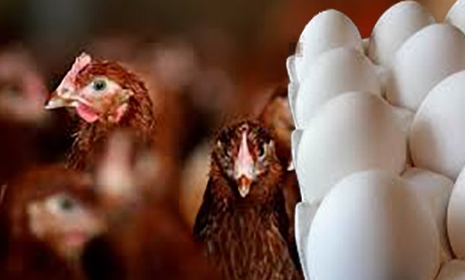Indian scientists isolate probiotics from chicken intestine, which could help disease-free poultry products. The bacteria isolated from intestine of country chicken is a lactic acid bacteria called probiotics, which can be used in poultry farms for controlling diseases especially Salmonella for improved growth.
Puducherry (ISJ) – Indian scientists have isolated probiotics from chicken intestine, which could help disease-free poultry products. The bacteria isolated from intestine of country chicken is a lactic acid bacteria called probiotics, which can be used in poultry farms for controlling diseases especially Salmonella for improved growth.
“The bacteria produce antimicrobial substance called Bacteriocin which can be used for preservation of meat products as well as fish and shrimp,” Dr. Arul Venkatesan, Professor and Head of Department of Biotechnology at Pondicherry University told Indian Science Journal.
The researchers have obtained the natural food preservative from Enterococcus faecalis CV7 bacteria which were isolated from intestines of country chicken. They cultured these bacteria in the lab under controlled conditions and isolated a short protein named bacteriocinCV7.
“BacteriocinCV7 can be used as a natural food preservative, as we have seen that it inhibits the growth of Salmonella, a causal agent of food poisoning”, explained Dr. Arul Venkatesan, who conducted the study along with Venkatesh Perumal. “The demand for natural food preservatives has dramatically increased amongst consumers owing to the need for healthy, safe, and fresh products.”
Studies showed that BacteriocinCV7 remained functional even at high temperatures of 90 degree Celsius and killed disease-causing microbes in food in less than 18 hours even at a low concentration of 1gram per liter. Therefore, using bacteriocinCV7 can reduce use of synthetic preservatives and make food safe for consumers, said Venkatesan.
In addition, he said, bacteriocin CV7 can also be used as a probiotic for poultry to control infections in place of synthetic antibiotics. This will make food safe for humans in the long run. The scientists have found that bacteriocinCV7 is non-toxic and safe by testing it on cultured human cell lines.
The research results were published in the latest edition of the International Journal Food Sciences and Nutrition.
Ashok Pandey, scientist at the Center of Innovative and Applied Bioprocessing in Mohali, who is not connected to the study, commented bacteriocinCV7 could be used as a preservative in the food industry, but it would require more studies to evaluate the possibility of commercial exploitation.
“The bacteria can be produced in large scale using fermenters (5 litres to 1000 litres. We have also developed a low cost medium for production of these bacteria on a large scale. The antimicrobial peptide bacteriocin is extracted from the medium and purified,” explained Dr. Arul Venkatesan.


